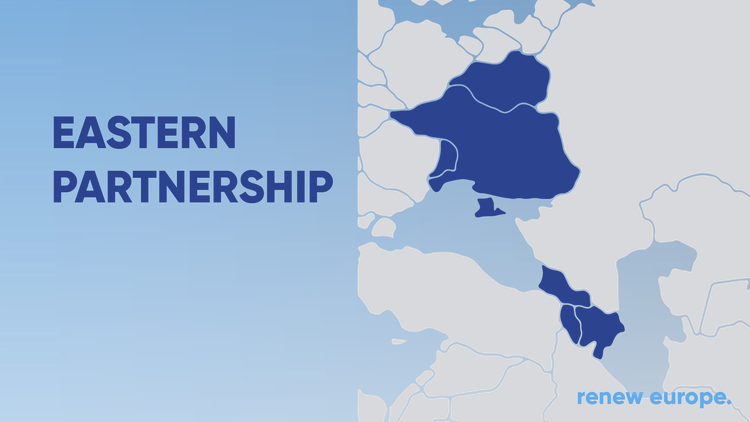Full support to Ukraine and keeping the Eastern Partnership countries on the European path must be a EU priority
Author: Lucian Goleanu
Date:

The Renew Europe Group in the European Parliament welcomes today’s first payment of €4.5 billion under the new EU’s Ukraine Facility, helping Kyiv to finance the functioning of the state, such as public wages, pensions, and the provision of basic public services, so that the country can continue focusing efforts on winning the war.
During today’s plenary session of the 11th Ordinary Euronest Parliamentary Assembly, taking place in Brussels and focusing on the future for the Eastern Partnership policy in the aftermath of Russia’s war of aggression against Ukraine, Renew Europe strongly supported the call on Member States to find legal solutions enabling the confiscation of frozen Russian assets and to use them for the reconstruction of Ukraine.
Our political group also called on the Eastern Partnership countries to fully align themselves with the EU sanctions against Russia for its war of aggression against Ukraine and to effectively prevent any existing or potential attempts to circumvent the sanctions through their territory.
Renew Europe addressed as well the situation of political prisoners in Azerbaijan and held a meeting with the daughter of imprisoned Gubad Ibadoglu, accompanied by a number other Azeri human rights activists.
Renew Europe MEP, Petras Auštrevičius (Lithuanian Liberal Movement), shadow rapporteur on Ukraine and Renew Coordinator of the EP Delegation to the Euronest Parliamentary Assembly, said:
“It is essential to maintain the Eastern Partnership as a format of equal cooperation based on strong principles - strengthening democracy and respect for the rule of law - while promoting comprehensive reforms in those countries seeking a closer partnership with the EU. The EU has no right to ignore gross human rights violations in individual EaP countries and must defend every political prisoner, especially when those falsely accused face the risk of death due to lack of medical treatment and harsh prison conditions, like Dr Gubad Ibadoglu in Azerbaijan.”